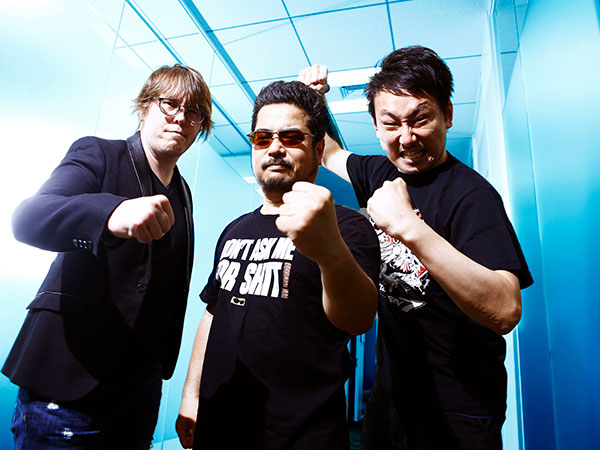“TEKKEN 7” is a classic 3D fighting game that shows excitement in the esports scene on a global scale. Katsuhiro Harada, General Producer of the TEKKEN series along with Michael Murray, the current producer on the TEKKEN brand, and the 2019 TEKKEN World Tour winner, Chikurin take a look back at last year’s action packed season.
*This interview was conducted on May 12, 2020.
Communities around the world are more excited about TEKKEN World Tour than ever before. A look back at “TEKKEN World Tour 2019”
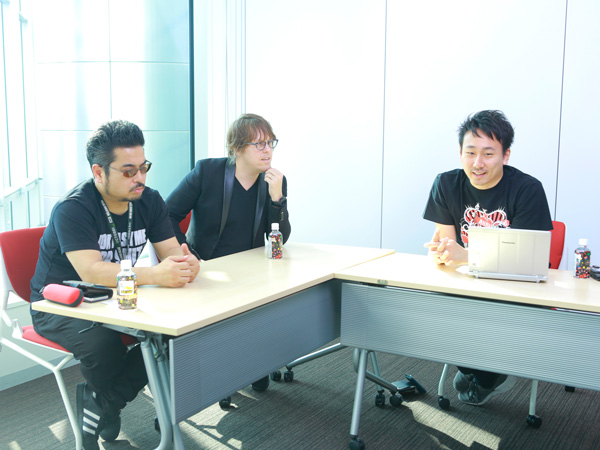
Last year’s “TEKKEN World Tour 2019” marked the debut of a new “DOJO” system which enabled competitors to obtain official points (*1) and participate in year-end final competitions even if the events were organized by local tournament organizers (T.O.s) spread around the world (*2). What do you think about this updated Dojo system?
Harada: The “DOJO” system has been extremely well received, and various people gave us positive feedback. Of course, the format of the tournament itself is not new, there have always been tournaments that were independently organized by the TEKKEN community, and the larger tournaments are officially certified as World Tour tournaments. The difference with the Dojo system is that official TEKKEN World Tour points (TWT points) will be awarded even in competitions where players voluntarily gathered, expanding the scale of the entire world tour and energizing the TEKKEN community.
*1 There are four categories of point-based tournaments compose “TEKKEN World Tour 2019″:”MASTER +”, “MASTER”, “CHALLENGER”, and “DOJO”. Unlike “MASTER +”, “MASTER”, “CHALLENGER” which are an official certified tournament, “DOJO” is an official tournament where points are allocated to the winners when the tournament organizer applies.
*2 “TEKKEN World Tour 2019” consists of a number of point-based tournaments held during the period. A total of 20 people, including the top 19 players who scored points and one who passed the final qualifying round on the first day of the final, will compete for the annual championship in a round-robin match and tournament match on the second day of the final.
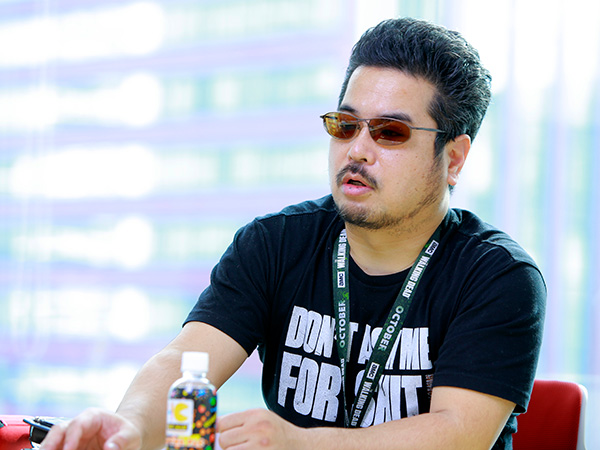
If players can get points at a “DOJO” tournament that can be held voluntarily, it seems that players who do not have the financial means to travel abroad will have the opportunity to compete and succeed.
Michael: Exactly. That was the original aim of the “DOJO” system. We’ve been holding “TEKKEN World Tour” events since 2017 and through the years many players have commented that, “it is difficult to go to a tournament where I can get points.” That’s when I wanted to make sure that players who were active in the local tournament scene had more stakes in attending local tournaments and expand their esports opportunities.
Yasuda: In fact, Pakistani players, led by Arslan Ash, played a big role in the 2019 season. Although they displayed great ability from the beginning, we, and possibly themselves, didn’t really recognize their skills until 2018. Starting in the latter half of 2019, many “DOJO” competitions have been held in Pakistan. Once again, this big points system change helped uncover highly skilled hidden talent, enabling this group of players to officially earn points in Pakistan.
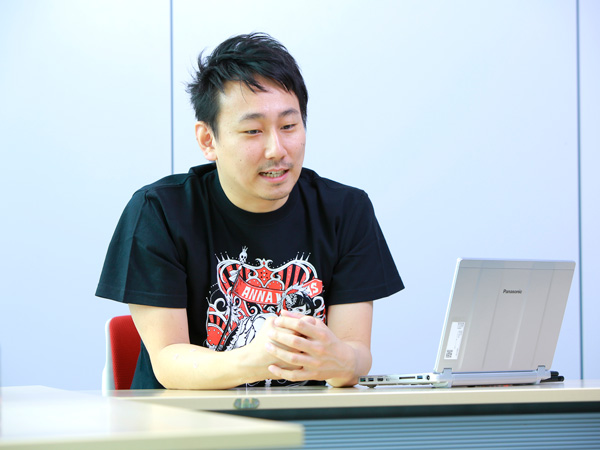
Harada: Having created the basis for people to gather in various countries, we experienced a new inflow of competitors into the tournament scene. For example, a player who would not normally go to a South American tournament, went there to get points. Moreover, since tournaments can now be watched around the world online, people interacted in various places such as North America, Europe, Asia, and South America, and it soon became clear “where the strongest players are”. In that sense, I feel that TEKKEN players are becoming their own special group which could be called a “TEKKEN layer” that transcends a country or region. This may be attributed to the uniqueness of the internet age.
Michael: From the beginning of the “DOJO” tournament, almost every weekend during the World Tour, you have been able to enjoy TEKKEN tournaments somewhere. In some countries, it may be difficult to secure a formal venue, so it is really appreciated that smaller local competition can be held.
What was the most impressive thing during the 2019 season?
Michael: One new phenomenon we saw was the creation of “must visit sites” rising in various places. For example, in Japan, many players are gathering at “Fighting Tuesday”, BANDAI NAMCO Entertainment’s official event, organized at “Red Bull Gaming Sphere Tokyo” in Nakano, Tokyo. This is a phenomenon that many overseas TEKKEN fans are aware of and when they come to Japan they think “Let’s go to Nakano and check it out.”
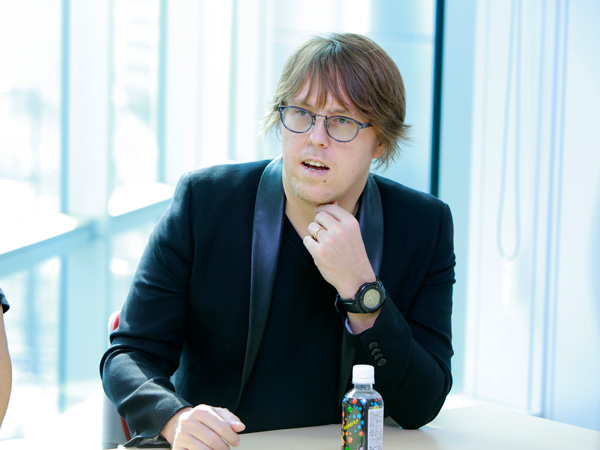
It has vitalized the area, hasn’t it?
Harada: That’s right. Moreover, since the “DOJO” system has become a hot topic, it is an interesting phenomenon that those who have never been interested in TEKKEN or who have not played the game, are now interested in the tournament scene. In addition to the excitement of esports, improvements in high-speed internet has brought more spectators into the game as spectators. As a result, TEKKEN players have gained some fame.
“TEKKEN 7” entered the unprecedented Sengoku period (the age of war)! What’s drawing new people into the current scene?
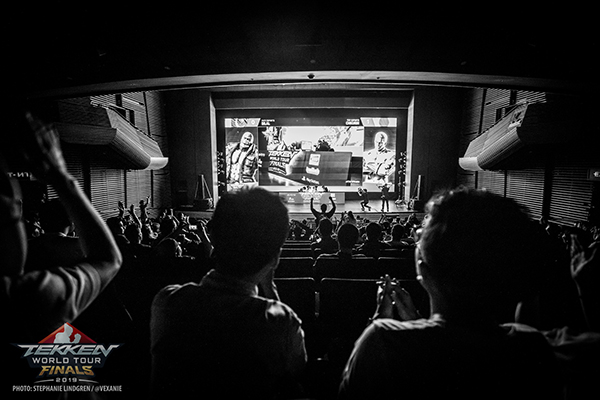
Please tell us if you have any impressive players during “TEKKEN World Tour 2019”.
Yasuda: I’m in a special position to support all 14 professionally licensed TEKKEN 7 players at the moment, and one of the most impressive members amongst them is the Japanese player named, Double. He qualified for the Grand Finale of “TEKKEN World Tour 2018 Finals” without losing once, so everyone thought he would win. Although he had a lead at first, he eventually lost the game by a reversal to Italian player, Ghirlanda. He is usually a cheerful and playful player, but after his loss, he was crying backstage. I didn’t know what to say to him so I simply cried with him in sympathy.
However, since then, a famous team asked him to join their ranks for their run at the world tour. After having won the tournament in Taiwan, he became a finalist at “TEKKEN World Tour 2019”. He may be disappointed at his ultimate result, but I was impressed that he reached 5th place(tie) at the end. He is a player that attracts people and has a great story.
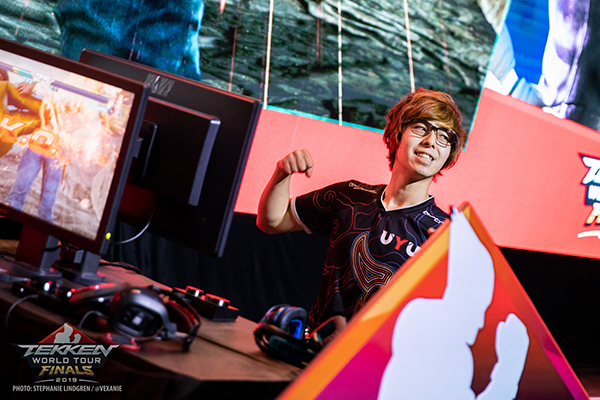
Harada: I not going to talk about one particular player, but as you know, Pakistani players played an active part in 2019. I knew that Pakistan had a TEKKEN community for a long time. By finally connecting communities that have been traditionally scattered all over the globe, the Pakistani players could truly test and understand their ability for the first time.
“TEKKEN” has gone through a transition from the time when a lot of European and American people played the game to the rise of Japanese and Korean players. When people all over the world thought that Japan and South Korea were the strongest, Pakistani players began to rise in the rankings. This was very interesting and that’s when I felt that players starting asking themselves, “Who will stop Pakistan?”
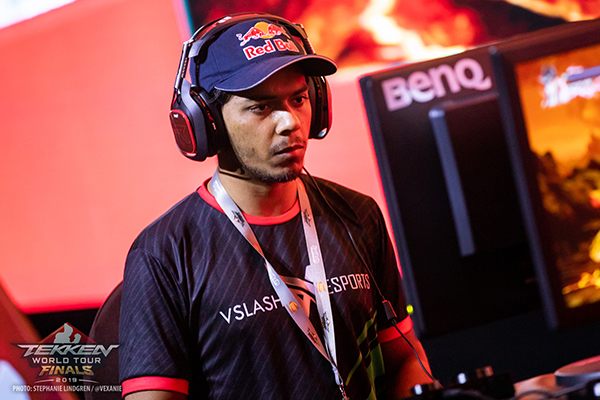
During group qualifications at the “TEKKEN World Tour 2019 Final”, Korean player KNEE, who ranked #1 in the world, chose the same group as Arslan Ash who triggered the 2019 whirlwind rise of Pakistan.
Harada: That’s right. Also, Japanese player Nobi was in the same group as Pakistani player Awais Honey. The emergence of new strong competitors may have created a sense of unity between Japan and Korea.
Yasuda: By the way, South Korean player LowHigh said after the tournament, “I’m glad we were able to prevent Pakistani players from rising to the top eight.” He also added, “I’m glad that I’ve deepened interaction with Japanese players and helped to revitalize the community,”.
Harada: If you think calmly, it’s strange because it’s not a team match (laughs). However, there is not only Pakistan players, but also still many strong communities in TEKKEN, especially in places like Ivory Coast and Peru. Through the success of Pakistani players in 2019, I hope that many new players will be inspired and also compete with a “we can do it!” attitude.
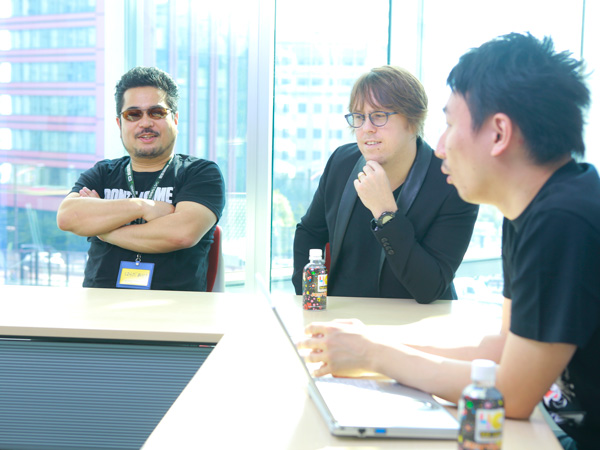
Michael: What impressed me was the American player, Anakin. He surprisingly won a championship when Harada and I first saw him at “MLG (Major League Gaming)” in Texas, despite just being 16 years old at the time. He’s shown great potential ever since and has been active using JACK-7 consistently. I think he is a great player and I’m impressed with his sportsmanship, being friendly no matter how strong his rival is.

When we say, “TEKKEN World Tour 2019 final”, Korean player Ulsan was also outstanding.
Harada: To be honest, I wondered if Ulsan would win the championship.
Yasuda: But in the end, the Japanese player Chikurin won the championship following his great strategy.
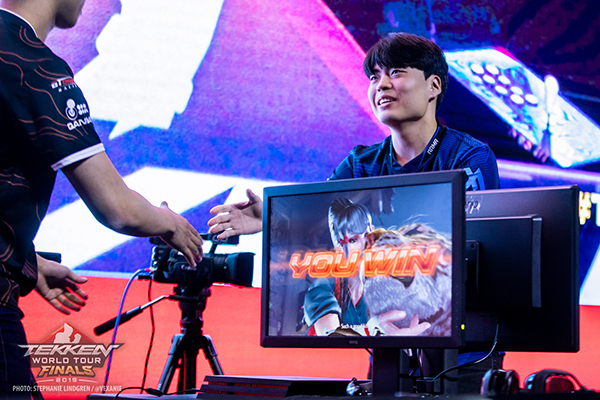
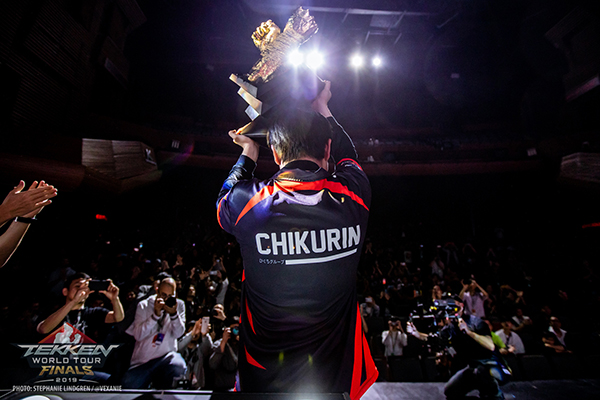
Chikurin, who had been using Geese leading up to the TWT Finals, changed his character to Akuma for the finals. I overheard that Chikurin was practicing Akuma just to play against Ulsan.
Harada: Back in the day, it was common to play different characters at arcades amongst people who knew each other’s gameplay styles well. However, implementing the strategy of “if this person wins, I will use this character” being applied at the big tournament is great to see. What an era!
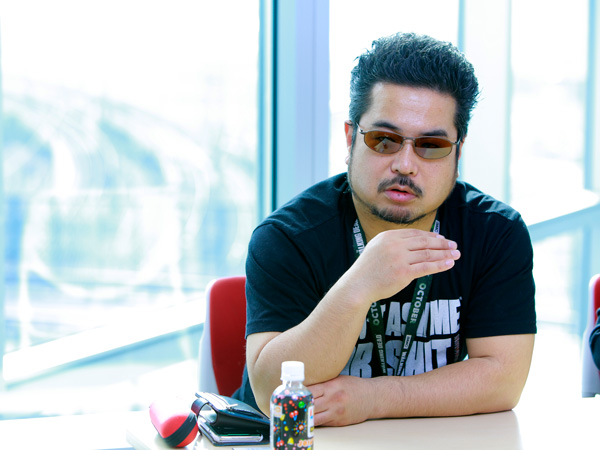
Chikurin who won “TEKKEN World Tour 2019 Finals” talks about “TEKKEN”
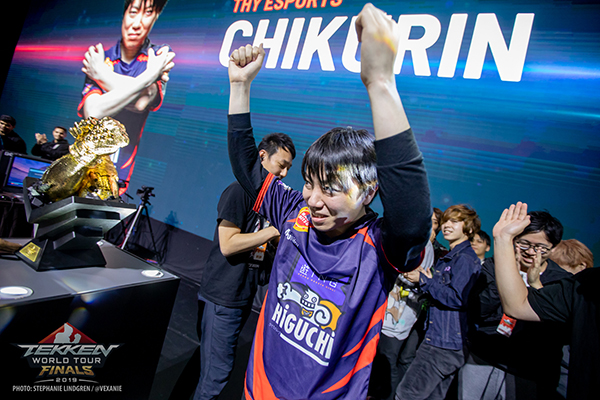
The “TEKKEN” series is expected to be even more exciting in the 2020s due to the increased number of players around the world and the emergence of new strategies. How does Chikurin, who won the “TEKKEN World Tour 2019 Finals” look back on the 2019 season? And what are his thoughts on the future of TEKKEN?
Congratulations on winning the “TEKKEN World Tour 2019 Finals”. You have won the world championship. How did you feel when you won?
Chikurin: I couldn’t believe it, I felt like I was dreaming. I am really glad that I had been practicing and never gave up my dream of winning during the 2019 season.
In 2019, Pakistani players began participating in the TWT and you went on a tour there. How did that experience affect this victory?
Chikurin: The experience in Pakistan definitely had an impact. I practiced Akuma, the character I used in the final match, with consideration for the Pakistani players.
When did you make your debut at TEKKEN tournaments? Also, how did the battle environment in TEKKEN change between your debut and now?
Chikurin: The first tournament I participated in was TEKKEN 4. The biggest change in the battle environment is that we can now play online, so we can play anytime without worrying about time, and it is easier to develop strategies to use against different characters.
For the development of esports competition, the changes in the online environment are significant.
Chikurin: On the other hand, due to online play, we now gather less in-person and talk about our play, so there is a delay in exchanging information. Being used to online competition, it may interfere with offline competition. I think it is important to do both.
Please tell us about your future aspirations and what kind of competition you want “TEKKEN” to be in the future.
Chikurin: I want to continue to achieve winning results at competitions such as EVO and TWT, consecutive wins would be great. I would like to see an increase in the number of events and to see more people enjoy fighting game tournaments through “TEKKEN.”
A tournament that can also be appreciated by spectators
The first venue for the “TEKKEN World Tour Finals” was in San Francisco, in the USA, the second in Amsterdam, Netherlands. The venue for 2019 was Bangkok, Thailand, what was the deciding factor for this year’s location selection for the TWT Finals?
Michael: When we were saying “Let’s do it in Asia” in 2019, I suggested to my team members, “What about Thailand? It’s exciting, isn’t it?” (Laughs). Of course, everyone gathers at the venue for “TEKKEN”, but for people who can’t often take vacation, it might be an annual trip combined with vacation. For those people, it’s important that the place itself is attractive.
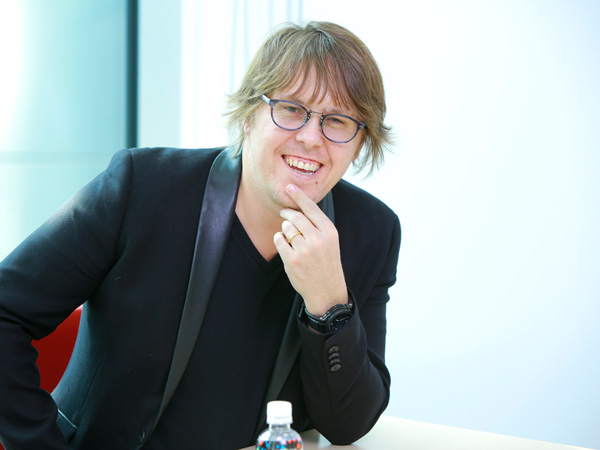
I see. The idea is to think of a place that many people can enjoy, not only to participate in the “TEKKEN World Tour” but also as a nice trip to a wonderful city.
Harada: After all, if the city is attractive, it will be an exciting element that even non-finalists and spectators can enjoy visiting. In that sense, it is very important to have either have a convenient location to travel from, accessible from all over the world or have a charming and attractive location for people to look forward to visiting.
Building more excitement for the TEKKEN series in the 2020s.
How do you see the excitement surrounding the TEKKEN series now and the future?
Harada: In my case, I’ve been involved so long that I can’t be objective.
Yasuda: I’m sure that players commit more and more of their time to “TEKKEN”. I hope “TEKKEN” taking up more time in people’s entertainment cycle during the week with increased play time, watching a broadcast, and participating in competitions.
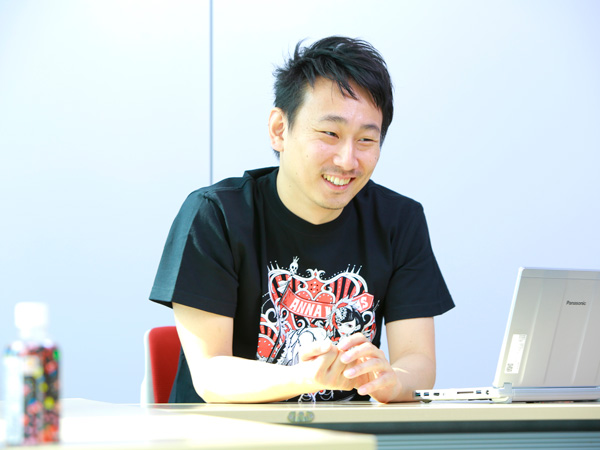
Harada: Certainly. That is really true. In the past, fighting games had a cycle in which a new title came out to a certain extent every 1-2 years, but “TEKKEN 7” has been played by many people since its original limited release in Japanese arcades in 2015. Also, many people watch walkthrough videos and upload “Let’s Play” videos today. From my point-of-view, I am glad that new generations of gamers play TEKKEN 7. I have the impression that players’ generation have changed more than five times and a wide generation of active gamers have played TEKKEN.
Are there any things you remember when you first started the series? What kind of future did you, Mr. Harada, imagine for TEKKEN at the beginning?
Harada: At that time, I didn’t imagine the future (laughs). “TEKKEN” started out as a latecomer in the fighting game genre, but I clearly remember being asked by my bosses and my bosses’ bosses at that time, “When do you think you can develop a game to beat our competitors?” So, I said “it will take 10 years”. Then, “let’s do it for 10 years” they said. So, at the beginning of the series, we only thought 10 years into the future.
As we continued working on TEKKEN, around the time of “TEKKEN 5”, we experienced a slowdown in the popularity of fighting games. Taking that dark time in consideration, the current popularity of fighting games is completely unexpected, and I never expected it to be like this.
Michael: When I first got involved in TEKKEN, the word “esports” wasn’t that common yet. I am a little surprised at our current state because BANDAI NAMCO was not as passionate about esports then as it is now. Moving forward, I would like to focus on the players above all else, developing the drama and storylines among the players and increasing the popularity of fighting games as a spectator sport. I think it is ok for people to become interested in the players/competitors first, then, start being interested in TEKKEN.
Harada: I would like to find the best balance between delivering benefits targeted directly to the fighting game community and delivering fun for those who want to simply enjoy watching the game/tournaments.
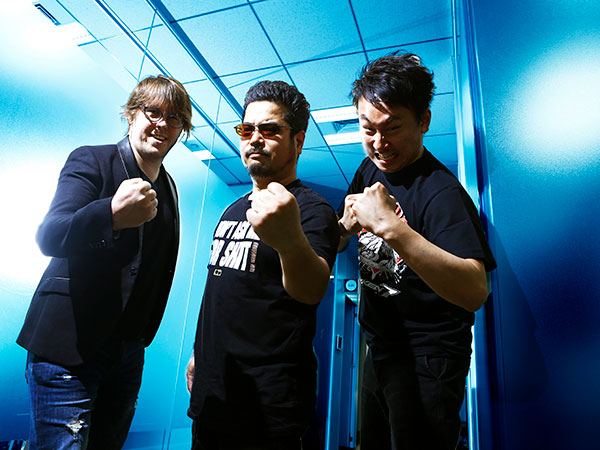
Editor’s Note
What was impressive during this interview was the amount of effort goes into developing and boosting the TEKKEN 7 game and community at large. The world of “TEKKEN 7”, has grown and is more connected than ever and we hope to see even more great stories, rivalries, and high-level competitive play this year.
Jin Sugiyama
Freelance writer & editor. More fond of entertainment than just about anything.



